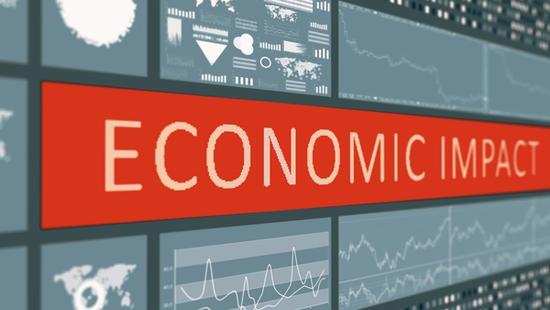“Shaping the Future of Central and South-East Europe: Policy, Business and Innovation towards 2030”
Economic Forum on Central and South-East Europe 2025
Nova Gorica, European Capital of Culture 2025 Date: 21 October 2025 Organised by: Gnosis Institute
Venue:
The Economic Forum on Central and South-East Europe (CSEE) is a one-day gathering of policymakers, business leaders, academics, and practitioners dedicated to shaping the region’s future by strengthening its development potential. In 2025 the Forum will take place in Nova Gorica, European Capital of Culture 2025 and in this spirit highlight the cross-border dimension of regional development, connecting policy, business, creativity, and culture. Organised by the Gnosis Institute, the Forum will bring together policymakers, business leaders, academics, and practitioners to explore how the region can advance towards 2030. Discussions will focus on regional cooperation and EU integration, investment and cross-border co-operation opportunities, green transition, energy sector and infrastructure, as well as digital and creative economies. Through keynotes, expert presentations, panel discussions, and networking opportunities, the Forum offers a platform for exchange of ideas and building collaboration. After the Forum, Gnosis Institute will launch a call for papers regarding the theme of the Forum ensuring the debate continues beyond Nova Gorica.
About the Forum
The Economic Forum on Central and South-East Europe (CSEE) was initiated in 2023 by the founding organisation of Gnosis Institute, the Organisation of the Central and South-East European Consular Corps for Co-Operation and Development (OCECCD) as a workshop dedicated to exploring economic thought and examining the dynamics of Central and South-East Europe. What began as an open exchange of ideas among business leaders, diplomats, academics and honorary consuls has since grown into a platform for meaningful dialogue and knowledge-sharing. By 2025, this initiative had expanded in both scope and impact, and it is now entrusted to the Gnosis Institute, which carries its mission forward while broadening its vision for fostering economic insight and regional co-operation.
Programme
09:00 – 09:30 | Opening Session
The Forum opens with welcome remarks from representatives of Nova Gorica, Slovenia, Italy and the European Union, followed by a keynote address on “Central and South-East Europe in 2030: Integration, Innovation and Resilience.” This session will set the tone for the day, highlighting the opportunities and challenges facing the region in a rapidly changing global context.
Welcome speech
Erik Molnár, Jr. Director of Gnosis Institute
Mija Lerbok (tbc) CEO GO!2025
Opening speech
Tina Seršen (tbc) State Secretary of Energy Ministry of the Environment, Climate and Energy Slovenia
09:30 – 11:00 | Session I:
Europe Reconnected – Regional Cooperation and EU Integration
This session examines the future of European integration and regional cooperation, with a focus on the Central and South-East Europe. How can the EU enlargement process advance in the Western Balkans? What role can cross-border initiatives play, from Nova Gorica–Gorizia to wider Central Europe–Balkan networks? And how can governance and democratic institutions be strengthened to ensure stability and resilience? Speakers of the panel will bring in different perspectives on how the region can remain anchored in Europe while navigating global uncertainties.
Speakers:
Ardian Hackaj, Research Director, Cooperation and Development Institute, Albania (online)
Nenad Đurđević, Advisor to the President, Chamber of Commerce and Industry of Serbia
Gábor Berczeli, Director, Robert Schuman Institute (tbc)
Tanja Bošković, Project Leader, RegioTrade, Deutsche Gesellschaft für Internationale Zusammenarbeit (GIZ) (tbc)
Moderated by Anna Orosz, Head of Research of Gnosis Institute
11:00 – 11:30 | Coffee break
11:30 – 13:00 | Session II:
Investment, Infrastructure and the Green Transition
Infrastructure and energy are at the heart of the region’s economic future. Speakers coming from think tank, business and academic circles will discuss the role of public–private partnerships, cross-border transport and energy corridors, and green transition investments. Participants will also explore how the EU Green Deal can become a driver of growth for Central and South-East Europe, the opportunities for financing sustainable infrastructure, and the challenge of balancing competitiveness with environmental commitments.
Speakers:
Attila Szalay-Berzeviczy, former President of the Budapest Stock Exchange and Senior Advisor of ERSTE Investment Ltd. (tbc)
Alessandra Proto, Head of OECD Trento Centre for Local Development, Italy (tbc)
Andrej Gubina, PhD, Director, Institute for Innovation and Development, University of Ljubljana (tbc)
Gábor Miklós, Assistant Lecturer, Institute of Global Studies, Department of World Economy, Corvinus University of Budapest
Moderated by Erik Molnár, Jr., Director of Gnosis Institute
13:00 – 14:30 | Networking Lunch
An opportunity for participants to connect, exchange ideas, and explore partnerships in an informal setting.
14:30 – 16:00 | Workshop (Invitation only)
New Drivers of Economic Growth and Development
The digital and creative sectors are increasingly recognised as engines of growth and innovation. Furthermore, new approaches to achieve sustainable solutions for economic development like circular economy can help broaden economic potential for Central and South-East Europe. The workshop will explore how digitalisation, artificial intelligence, start-up ecosystems and circular economic model are reshaping the region’s competitiveness. With Nova Gorica and Gorizia’s European Capital of Culture 2025 as a backdrop, the discussion will show also how culture and creativity can act as catalysts for economic development, attract investment, and foster cross-border collaboration.

